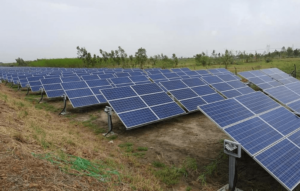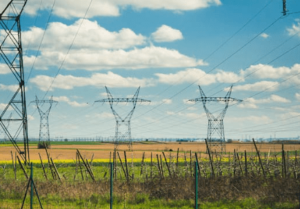SC makes new amendments to Articles 14 and 21, in light of Climate Change
In a historic first, the Supreme Court of India has ruled that protection from climate change is a fundamental right of the Indian people, under Articles 14 (right to equality) & 21 (right to life). A three-judge bench consisting of CJI (Chief Justice of India) Dr. Dhananjaya Y Chandrachud, J B Pardiwala and Manoj Misra ruled in correlation to an order announced in open court on March 21. The detailed judgement uploaded on April 7, encompasses the need to safeguard individuals against climate change and India’s global obligations to reduce carbon emissions.
The three-judge bench had formed an expert committee to rule on a petition by wildlife activist MK Ranjitsinh & others (MK Ranjitsinh And Others. v. Union of India And Others. WP(C) No. 838/2019) for conservation of the Great Indian Bustard (GIB), a critically endangered species of bird, listed in Part III of Schedule I of the Wild Life (Protection) Act 1972, found primarily in Rajasthan and Gujarat.

The petition asserted that GIB conservation is impeded by the installation of mass solar panels and other green energy projects, along with the construction of overhead high voltage power lines in potential GIB breeding areas, that pose a serious risk to the wellbeing of GIB’s in the regions. In response, the SC enforced a blanket order on setting up overhead power lines for central green energy projects in areas critical to GIB conservation.
A committee, comprising the Joint Secretary of The Ministry of Environment (Forests and Climate Change), Joint Secretary of The Ministry of New and Renewable Energy, National Board of Wildlife members, neutral experts, power company advocates, and other stakeholders, was appointed to assess the feasibility of balancing GIB conservation efforts with the centre’s renewable energy projects. The committee’s first report is expected by July 31, 2024.

The court also directed the conversion of low voltage power lines to underground within a year, in critical GIB breeding areas and the conversion of overhead high voltage lines into underground power lines, according to the appointed committees’ suggestions.
SC recognises Climate Change and its Worsening Implications on Indian Citizens
The CJI bench also ruled that despite no clear outline in the Indian constitution, certain stipulations for example Article 48A of constitution (duty of the state to protect and improve the environment to safeguard the forests and wildlife of the country), Clause (g) of Article 51A (duty of every citizen of India to protect and improve the natural environment including forests, lakes, rivers and wild life, and to have compassion for all living things), Article 14 (All persons have equality before law and enjoy equal protection of laws) & Article 21 (The right to life and personal liberty), are important precursors of the right to a clean environment and the right of protection against climate change.
SC also cited prior Indian environmental law rulings in cases like M.C. Mehta v. Kamal Nath (1996), Virender Gaur v. State of Haryana (1994), Karnataka Industrial Areas Development Board v. C. Kenchappa (2006), & Bombay Dyeing & Mfg. Co. Ltd. (3) v. Bombay Environmental Action Group (2005), establishing strong precedents for the need to protect citizens from the growing impact of climate change.

Various socio-economic aspects of climate change were also discussed, with the Supreme Court presenting comprehensive arguments like, “Without a clean environment which is stable and unimpacted by the vagaries of climate change, the right to life is not fully realised, factors such as air pollution, shifts in vector-borne diseases, rising temperatures, droughts, shortages in food supplies due to crop failure, storms and flooding, would undoubtedly impact the right to equality of poorer communities than richer ones in case of acute food and water shortages in a particular area.”
The apex court further added, “Despite a plethora of decisions on the right to a clean environment, some decisions which recognise climate change as a serious threat, and national policies which seek to combat climate change, it is yet to be articulated that the people have a right against the adverse effects of climate change. This is perhaps because this right and the right to a clean environment are two sides of the same coin. As the havoc caused by climate change increases year by year, it becomes necessary to articulate this as a distinct right. It is recognised by Articles 14 and 21.”
The SC also re-evaluated the country’s climate obligations
The bench also stressed the importance of exploring climate obligations with the worsening of climate change in regards to upholding human rights principles, economic development, the right to a healthy environment, and the need to bolster renewable energy projects to reduce India’s dependence on fossil fuels.

CJI Chandrachud commended India’s sustainable development goals as per the UNFCCC and said India has enormous potential for supplying the global energy demand, that’s likely to increase.












Comments 1